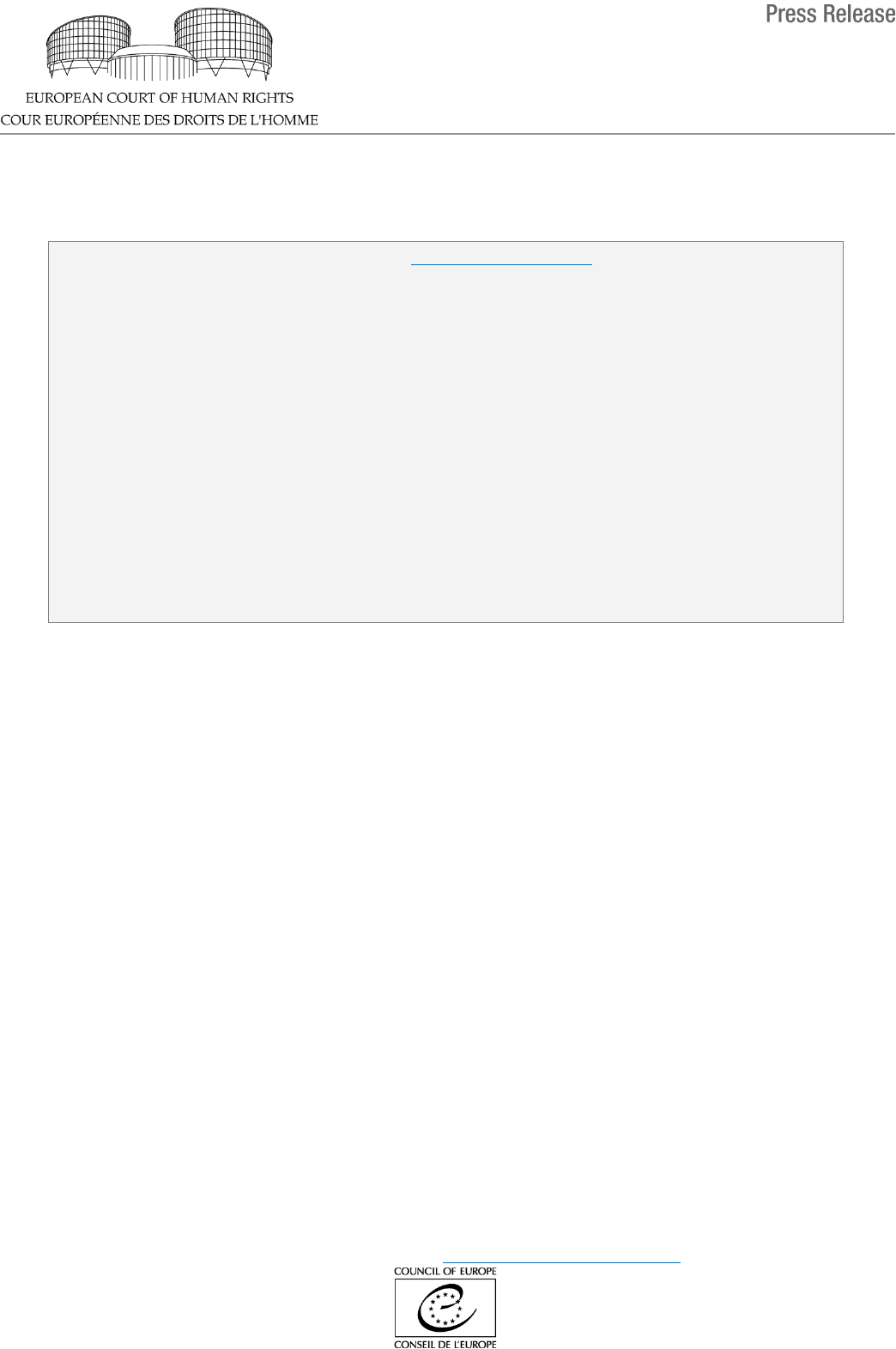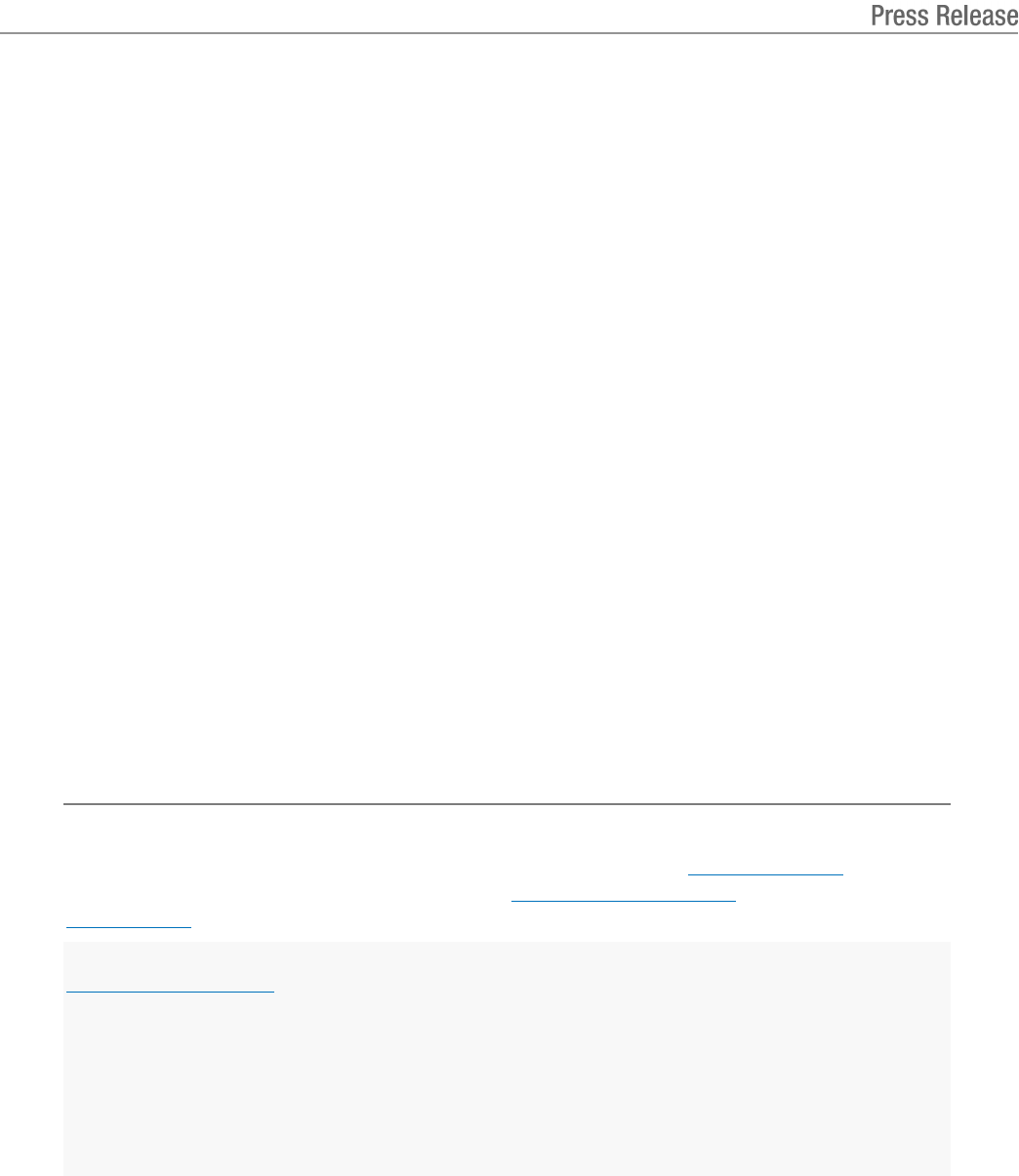
issued by the Registrar of the Court
ECHR 158 (2023)
30.05.2023
No violation of former President of Croatia’s rights in online news article
alleging his possible involvement in bribery
In today’s Chamber judgment
1
in the case of Mesić v. Croatia (no. 2) (application no. 45066/17) the
European Court of Human Rights held, by five votes to two, that there had been:
no violation of Article 8 (right to respect for private life) of the European Convention on Human
Rights.
The case concerned an article published in February 2015 by an Internet news portal Dnevno.hr
suggesting that the applicant, a former President of Croatia, had, during his term of office, been
offered or taken bribes in relation to the procurement of armoured vehicles for the Croatian army
from the Finnish company Patria. Mr Mesić complained that by dismissing his civil action for
compensation, the domestic courts had failed to protect his reputation in violation of his right to
respect for private life.
The Court noted that the article had not targeted Mr Mesic’s private life but had referred to his
conduct in the exercise of his official duties and, in reporting what had been stated in official
documents, had not unambiguously stated that he had participated in criminal activities. In
particular, it found that the Croatian courts had struck a fair balance between the former president’s
right to respect for his private life and the right of the news portal to freedom of expression.
Principal facts
The applicant, Stjepan Mesić, is a Croatian national who was the President of Croatia from 2000-10.
He was born in 1934 and lives in Pušća (Croatia).
In 2013, in Finland, three former employees of the Finnish company Patria were indicted and
charged with aggravated bribery in relation to a procurement process for armoured vehicles for the
Croatian army. The indictment suggested that Mr Mesić was one of those who had been offered or
given a bribe. On 16 February 2015, two of the former employees were found guilty by a District
Court and were given a suspended sentence. (That judgment was overturned in February 2016
following an appeal).
The following day, a Croatian Internet news portal Dnevno.hr published an article about the case
suggesting that the Croatian authorities should investigate Mr Mesić’s role in the matter. The former
President subsequently requested that the news portal publish a correction of three statements
which he considered to be false and injurious:
(i) “Stjepan Mesić received a bribe of 630,000 euros from people who have just been convicted of
giving bribes”;
(ii) “in the meantime, [two] Patria managers ... who were directly charged in the indictment with
giving bribes to Stjepan Mesić and the director of [the Croatian company] ... were sentenced to
1. Under Articles 43 and 44 of the Convention, this Chamber judgment is not final. During the three-month period following its delivery,
any party may request that the case be referred to the Grand Chamber of the Court. If such a request is made, a panel of five judges
considers whether the case deserves further examination. In that event, the Grand Chamber will hear the case and deliver a final
judgment. If the referral request is refused, the Chamber judgment will become final on that day.
Once a judgment becomes final, it is transmitted to the Committee of Ministers of the Council of Europe for supervision of its execution.
Further information about the execution process can be found here: www.coe.int/t/dghl/monitoring/execution.

2
[terms of imprisonment of] one year and eight months for giving bribes for the sale of armoured
vehicles to Croatia”;
(iii) “the joint investigation undoubtedly established that Mesić and [the director of the Croatian
company] participated in criminal activities”.
He explained that he had not in any way been involved in the procurement procedure in question,
that the persons convicted in Finland had not been found guilty of promising or giving bribes to him,
and that he had not been offered or received a bribe. He also stated that no one had contacted him
to verify the statements before the publication of the article.
The news portal refused to publish a correction and stood by the statements. The journalist
submitted that the statements were not his own but originated in the Finnish indictment and the
District Court’s judgment.
Mr Mesić brought civil proceedings against the news portal company for defamation, claiming that
the statements were false and had breached his honour and reputation. His claim was dismissed,
and he was ordered to pay the defendant HRK 3,750 (approximately EUR 490) for the costs of the
proceedings. His subsequent appeal was dismissed, as was his further complaint before the
Constitutional Court.
Complaints, procedure and composition of the Court
Relying on Article 8 (right to respect for private life), the applicant complained that by dismissing his
civil action for compensation, the courts had failed to protect his reputation.
The application was lodged with the European Court of Human Rights on 20 June 2017.
Judgment was given by a Chamber of seven judges, composed as follows:
Arnfinn Bårdsen (Norway), President,
Jovan Ilievski (North Macedonia),
Egidijus Kūris (Lithuania),
Pauliine Koskelo (Finland),
Frédéric Krenc (Belgium),
Diana Sârcu (the Republic of Moldova),
Davor Derenčinović (Croatia),
and also Hasan Bakırcı, Section Registrar.
Decision of the Court
The Court has already ruled that although the press must not overstep certain bounds, in particular
in respect of the reputation and rights of others and the need to prevent the disclosure of
confidential information, its duty is nevertheless to impart – in a manner consistent with its
obligations and responsibilities – information and ideas on all matters of public interest.
The Court agreed that the statements portraying Mr Mesić as a criminal had been capable of
seriously tarnishing his reputation and discrediting him in the public eye, thereby endangering his
rights under Article 8 of the Convention. The main issue was whether the State had achieved a fair
balance between Mr Mesić’s right to protection of reputation and the right of the news portal to
freedom of expression. It noted that in examining the case, the national courts had paid attention to
the relevant criteria laid down in the Court’s case‑law for that balancing exercise. They had
considered whether the article had contributed to a debate on a matter of public interest, how well
known the applicant was, and the way in which the information had been obtained and how true it
was.

3
The Court found that the article had undoubtedly concerned a matter of public interest, and the
“watchdog” role of the media was particularly important in such a context, where investigative
journalism meant that the authorities could be held to account. Also, the limits of acceptable
criticism were wider as regards a politician than as regards a private individual. This applied even
more so to Mr Mesić as he was not an ordinary politician but a head of State. Moreover, the article
had not targeted his private life but had referred to his conduct in the exercise of his official duties.
The Court held that the domestic courts’ findings had to be viewed in the light of the fact that they
had examined the article as a whole rather than simply reviewing the three statements in isolation.
For the Court, the domestic court’s approach was justified, it being difficult to disassociate the three
statements from the rest of the article.
The Court found that the journalist had only reported what was stated in official documents and had
made it clear that the statement about Mr Mesić receiving a bribe of EUR 630,000 was not his own.
The Court found nothing inaccurate in the statement that two people had been sentenced to terms
of imprisonment for giving bribes for the sale of armoured vehicles to Croatia. As regards the third
statement, the Court found that it could not be said, when taking the article as a whole, that the
journalist had unambiguously stated that Mr Mesić had participated in criminal activities.
The Court concluded that the national courts had struck a fair balance between the former
president’s right to respect for his private life and the right of the news portal to freedom of
expression. There had therefore been no violation of Article 8 of the Convention.
Separate opinion
Judge Kūris expressed a partly dissenting opinion joined by Judge Ilievski. This opinion is annexed to
the judgment.
The judgment is available only in English.
This press release is a document produced by the Registry. It does not bind the Court. Decisions,
judgments and further information about the Court can be found on www.echr.coe.int. To receive
the Court’s press releases, please subscribe here: www.echr.coe.int/RSS/en or follow us on Twitter
@ECHR_CEDH.
Press contacts
[email protected] | tel.: +33 3 90 21 42 08
We would encourage journalists to send their enquiries via email.
Jane Swift (tel.: + 33 3 88 41 29 04)
Tracey Turner-Tretz (tel.: + 33 3 88 41 35 30)
Denis Lambert (tel.: + 33 3 90 21 41 09)
Inci Ertekin (tel.: + 33 3 90 21 55 30)
Neil Connolly (tel.: + 33 3 90 21 48 05)
The European Court of Human Rights was set up in Strasbourg by the Council of Europe member
States in 1959 to deal with alleged violations of the 1950 European Convention on Human Rights.
